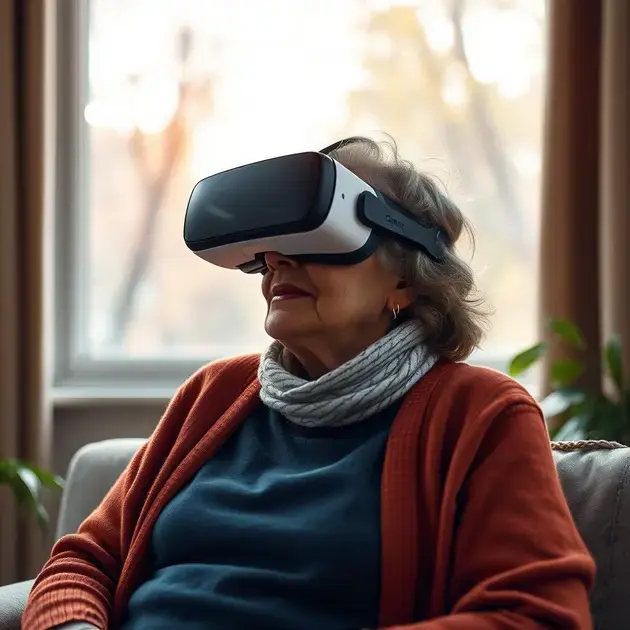When it comes to managing Alzheimer’s disease, having a comprehensive guide on treatment options is crucial. As this condition affects millions of people worldwide, staying informed about the latest advancements in treatment is essential.
From medication to lifestyle changes and alternative therapies, this guide will delve into various strategies aimed at improving the quality of life for individuals with Alzheimer’s disease.

Exploring Medication and Lifestyle Changes
When it comes to Alzheimer’s disease treatment options, exploring medication and lifestyle changes can play a crucial role in managing the condition. It is important to work closely with healthcare professionals to create a comprehensive care plan that addresses both medical interventions and lifestyle modifications. Here are some steps to consider:
1. Consult with a Healthcare Provider
The first step in exploring medication and lifestyle changes for Alzheimer’s disease is to consult with a healthcare provider. This can be a neurologist, geriatrician, or primary care physician who specializes in dementia care. They can provide an accurate diagnosis and recommend the most appropriate treatment options.
2. Discuss Medication Options
Medication plays a significant role in managing Alzheimer’s disease symptoms. Your healthcare provider may prescribe medications such as cholinesterase inhibitors or memantine to help improve cognitive function and behavior. Be sure to discuss the potential benefits and side effects of each medication.
3. Create a Healthy Lifestyle Plan
Alongside medication, lifestyle changes can also positively impact Alzheimer’s disease progression. This may include implementing a healthy diet rich in fruits, vegetables, and omega-3 fatty acids, engaging in regular physical exercise, and maintaining social and cognitive activities.
4. Monitor Progress and Adjustments
It’s essential to regularly monitor the effectiveness of the medication and lifestyle changes. Keep track of any improvements or challenges and communicate them to your healthcare provider. Adjustments to the treatment plan may be necessary based on the individual’s response to the interventions.
5. Seek Support and Resources
Caring for someone with Alzheimer’s disease can be demanding, so don’t hesitate to seek support from Alzheimer’s associations, support groups, and online resources. These platforms can provide valuable information and emotional support throughout the treatment process.
Alternative Therapies for Managing Alzheimer’s Disease
Aside from traditional medication and lifestyle changes, alternative therapies can also offer additional support in managing Alzheimer’s disease. These complementary approaches can help improve overall well-being and quality of life for individuals with dementia. Here are some alternative therapies to consider:
1. Mindfulness and Meditation
Practicing mindfulness and meditation techniques can help reduce stress and anxiety levels in individuals with Alzheimer’s disease. Apps like Headspace and Calm offer guided meditation sessions that can be beneficial for both patients and caregivers.
2. Aromatherapy
Aromatherapy involves using essential oils to promote relaxation and improve mood. Diffusing lavender or peppermint essential oils in the living space can create a calming environment for individuals with Alzheimer’s. Websites like AromaWeb provide detailed information on essential oils and their benefits.
3. Acupuncture
Acupuncture is a traditional Chinese medicine practice that involves stimulating specific points on the body to alleviate symptoms. Finding a certified acupuncturist through the National Certification Commission for Acupuncture and Oriental Medicine (NCCAOM) can help individuals with Alzheimer’s experience potential benefits like reduced anxiety and better sleep.
4. Music Therapy
Listening to music can evoke emotional responses and memories in individuals with Alzheimer’s disease. Platforms like Spotify and Pandora offer personalized music playlists that can help improve mood and cognitive function. Engaging in music therapy sessions led by trained professionals can also be beneficial.
5. Art Therapy
Engaging in creative activities through art therapy can stimulate cognitive function and self-expression in individuals with Alzheimer’s. Apps like ArtFlow and Adobe Fresco provide digital art platforms that can be easily accessed at home. Joining art therapy classes at local community centers or senior centers can also offer social engagement and support.

Exploring Early Detection Strategies for Alzheimer’s Disease
Alzheimer’s disease is a devastating condition that affects millions of people worldwide, with early detection being crucial for effective management. One promising strategy for early detection is the use of biomarkers that can indicate the presence of the disease before symptoms manifest. These biomarkers include amyloid and tau proteins, as well as brain imaging techniques that can detect changes in the brain associated with Alzheimer’s.
Another important aspect of early detection is genetic testing, which can identify individuals who are at higher risk of developing Alzheimer’s due to specific gene mutations. By analyzing genetic markers, healthcare providers can offer targeted interventions and monitoring to those at increased risk.
In addition to biological markers and genetic testing, cognitive assessments play a key role in early detection. Screening tests that assess memory, language, and problem-solving skills can help identify subtle cognitive changes that may indicate the onset of Alzheimer’s disease. Regular cognitive screenings for at-risk individuals can aid in the early diagnosis and prompt initiation of appropriate treatments.
It is essential for healthcare providers to stay updated on the latest research and advancements in early detection strategies for Alzheimer’s disease. By continuously exploring and implementing innovative approaches to identifying the disease in its early stages, we can improve patient outcomes and quality of life.
In conclusion, early detection of Alzheimer’s disease is paramount for timely intervention and management. By utilizing a combination of biomarkers, genetic testing, and cognitive assessments, healthcare professionals can enhance their ability to identify and treat the disease in its earliest phases, improving outcomes for patients and their families.
Nutritional Approaches to Supporting Alzheimer’s Patients
Proper nutrition plays a critical role in supporting the health and well-being of Alzheimer’s patients. Individuals with Alzheimer’s often experience changes in their eating habits and may require specialized diets to meet their nutritional needs. One approach to supporting these patients is through the use of nutrient-dense foods that are rich in antioxidants and brain-boosting nutrients.
Foods such as leafy greens, berries, fatty fish, and nuts have been shown to support brain health and cognitive function, making them an essential part of a diet for Alzheimer’s patients. Additionally, incorporating supplements such as omega-3 fatty acids and vitamin E can help to support cognitive function and slow the progression of the disease.
Hydration is also crucial for individuals with Alzheimer’s, as dehydration can exacerbate symptoms such as confusion and agitation. Caregivers should ensure that patients are drinking an adequate amount of fluids throughout the day to support overall health and cognitive function.
In addition to specific foods and supplements, meal planning and preparation can play a significant role in supporting the nutritional needs of Alzheimer’s patients. Caregivers should focus on creating balanced meals that are easy to eat and provide essential nutrients, taking into account any dietary restrictions or preferences of the individual.
By taking a holistic approach to nutrition and incorporating brain-healthy foods and supplements into the diet of Alzheimer’s patients, caregivers can support overall health and well-being, potentially improving quality of life and cognitive function.
Innovative Technologies for Treating Alzheimer’s Disease
Advancements in technology have opened up new possibilities for treating Alzheimer’s disease, offering innovative solutions to improve patient care and outcomes. One such technology is virtual reality (VR), which has shown promise in helping individuals with Alzheimer’s by providing immersive experiences that stimulate memory and cognitive function.
Virtual reality environments can recreate familiar settings from the past, such as childhood homes or favorite vacation spots, triggering positive memories and emotional connections. This can help to reduce feelings of agitation and confusion, while also providing mental stimulation and engagement for patients.
Another innovative technology for treating Alzheimer’s is wearable devices that track and monitor symptoms in real-time. These devices can collect data on patients’ sleep patterns, physical activity levels, and vital signs, providing valuable insights for healthcare providers to tailor treatments and interventions accordingly.
Telemedicine and remote monitoring technologies have also revolutionized the way healthcare is delivered to Alzheimer’s patients, allowing for virtual consultations, medication management, and continuous monitoring of symptoms from the comfort of home. This enhances access to care and support for individuals with Alzheimer’s, particularly those who may face challenges with mobility or transportation.
As technology continues to advance, the possibilities for treating Alzheimer’s disease are expanding, offering new hope for patients and caregivers. By embracing innovative technologies such as virtual reality, wearable devices, and telemedicine, we can improve the quality of life for individuals living with Alzheimer’s and enhance their overall care experience.
**
Conclusion
**
In conclusion, early detection strategies for Alzheimer’s disease are crucial for timely intervention and improved management of the condition. By utilizing a combination of biomarkers, genetic testing, and cognitive assessments, healthcare professionals can enhance their ability to identify the disease in its earliest phases. This comprehensive approach not only aids in early diagnosis but also enables the initiation of appropriate treatments, ultimately leading to better outcomes for patients and their families.
Moreover, nutritional approaches play a critical role in supporting the health and well-being of individuals with Alzheimer’s. By incorporating nutrient-dense foods rich in antioxidants and brain-boosting nutrients, caregivers can help maintain cognitive function and slow the progression of the disease. Ensuring proper hydration and balanced meal planning further contributes to overall health and quality of life for Alzheimer’s patients.
Lastly, innovative technologies offer new possibilities for treating Alzheimer’s disease and enhancing patient care. Virtual reality environments, wearable devices for real-time symptom monitoring, and telemedicine services provide valuable tools for healthcare providers to deliver tailored treatments and support. Embracing these advancements can significantly improve the quality of life for individuals living with Alzheimer’s and revolutionize the way care is delivered in a more accessible and effective manner.
